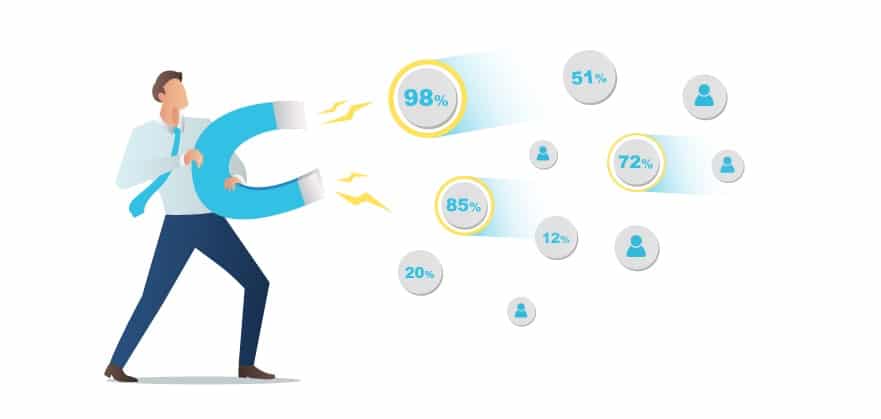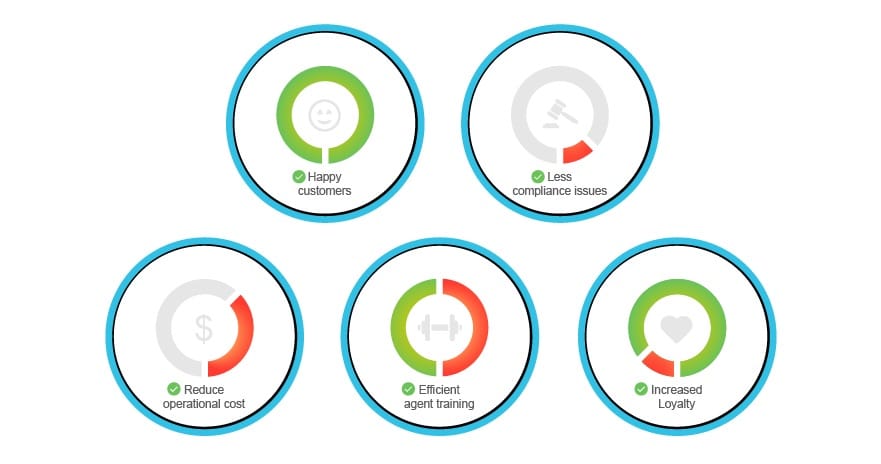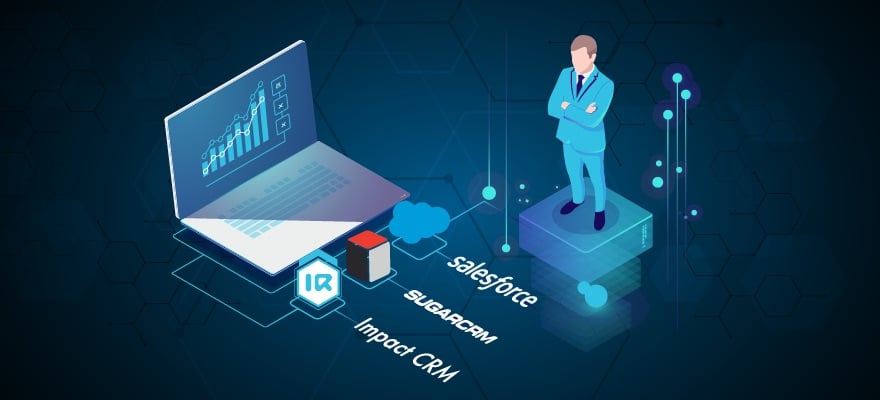‘Work smarter’ is a catchy term that gets attached to many things in business. For a CRM it’s about capturing customer-, account-, and interaction-related data, and presenting the most relevant information at the most appropriate time to better engage with customers.
Most CRMs fail to achieve this which is why 69% of businesses plan to replace their CRM. As you are reading this, you too would have added to that figure if you’d been asked. One of the biggest problems with CRMs is user dissatisfaction.
The Forrester report highlights the disparity between cost and value, set up difficulty and tricky implementation. It also found that most users (71%) find their CRM hard to learn among the many reasons fuelling their willingness to change system.
The report also revealed what users want from a CRM. These are mostly focused on the challenges that make it difficult for them to do their job.
Users want to work from a single platform. Many CRM solutions offer some of the information a user needs but require switching to other systems to complete the task.
This disrupts flow and adds more time to a task. This challenge is met by having a CRM with better integration with other systems.
A CRM Should Automate Simple Tasks
Another frustration stems from the lack of automation of some basic tasks. If a customer calls to ask about how a reported issue is being addressed, it is very helpful if the customer service agent has the last interaction at hand when they open that customer’s account.
However, because of the variety of interactions possible (phone call/email/text message/live chat) many CRM systems need this information to be updated manually. This results in unwanted latency and complicates an agent’s ability to best serve customers.
Personalised and differentiated experiences are the required currency to achieve satisfied and loyal customers. This is a challenge that has to be addressed now and most CEOs accept this.
Customer expectations with regards engagement have never been higher. The bar has been raised by so many other companies that are part of people’s daily lives.

The CRMs most users want to replace share a common problem. They treat customers like they are all the same. There is no such thing as a standard customer.
Customers engage with companies using a variety of channels. Often, the channel they use depends on the type of enquiry. For some customers a message via email or text is their preferred choice until the issue is urgent which is when they will use live chat or pick up the phone.
To achieve this level of personalisation requires a CRM which connects to every channel a customer uses and every department along the customer journey. However, and most importantly, the platform needs to be able to understand the context of each interaction within the customer journey.
Artificial intelligence (AI) is the critical ingredient for extracting context from the collection of data collected by a CRM platform.
Would your sales team buy your current CRM?
Nothing makes a salesperson happier than a red-hot sales lead. Unfortunately, few sales teams have anything positive to say about CRMs. Most do little to differentiate between the mixed bag of Leads collected and it’s down to sales to qualify them.
Most of a sales team’s time is spent prospecting and because it’s a manual process it is time intensive, expensive and highly inefficient.
Automating lead management can yield a 10% increase in revenue within six months. By bringing automated lead scoring and automated lead segmentation into the process the hottest leads go to the people best suited to convert them.
Manually distributing leads is open to errors. Some leads get missed and are not assigned. Too many to one salesperson and a lead can go cold or worse still if the same lead gets assigned to multiple agents they get turned off.
Automated lead scoring is the most efficient way to increase conversions. The best leads are approached first and as more conversion data is processed by the algorithm its predictive accuracy increases.
An impressive recent example is ImpacTech’s automated lead scoring tool which reported prediction accuracy of 86.7% after just three months implementation with one client.
Every sales person needs to establish a level of trust to convert a lead.

Building trust requires an understanding of who the lead is and the challenges they face. If your CRM paints an accurate picture of them it’s easier for sales to communicate more effectively.
Tracking a lead’s activity within a timeline gives your salesperson a contextual view of the lead and reveals their interest in your services. It creates the launching point to nurture a lead until they reach the point where they can be converted
By maintaining contact through the after-sales journey makes it easier to identify cross-selling opportunities.
Only an AI-Driven CRM meets today’s challenges
AI can be a revolutionary organisational tool, not just a technology that makes tasks like sales easier and some processes more efficient.
When applied across the whole organisation it can increase its entire capability, offering higher levels of precision, optimisation and understanding of the business.
“The real challenge with AI is how leaders need to rethink the organisational fabric of their business to make sure it’s applied at the right scale, beyond just solving a specific technical problem,” says David Lancefield, a partner at PwC’s Strategy&. “That’s how AI’s full benefits can be realised.”
AI can help a company to target the right audience and market its products. For sales it can identify which leads have the highest propensity to convert and engage with the product.
Further down the customer journey AI can derive a customer persona based on their background profile and in-product behaviour. Over time this creates the opportunity to offer customised in-product experiences.
This ongoing interaction also reveals customer pain-points and adoption patterns which is essential information for product development and the creation of a better customer offering.
Processing all the data available along the full length of the customer journey with an AI-driven CRM empowers a company to create a more personalised customer experience. Customers who experience a personalised journey are happier, stay loyal and this creates opportunities to cross-sell and reduce churn.
Customer support, sales, marketing and product development connect seamlessly to a single CRM platform which supplies the insights that are critical to ensure they function at their highest capability by processing the available data with AI.
Business Applications of AI
This huge leap forward has become possible because of the development of the many disciplines within AI. Machine learning, deep learning, predictive Analytics , continual learning, natural language processing, natural language understanding, sentiment analysis and conversational AI combine and interact to process volumes of data that are simply beyond human capabilities to deliver insights that drive a business forward.
The same technology is also valuable for its ability to automate some of the simplest and most mundane tasks and frees humans up to make better use of their time and skills. Predictive analytics is particularly important to business.
Surprises were usually great when you were a kid, but in business the fewer the better. Predicting customer behaviour is invaluable for companies because it enables them to be ready to respond and plan with confidence.

Customer issues are rarely unique. So, if your call centre is dealing with an issue there’s a strong chance that another customer will also face it. Repetition of issues enables AI to identify the most common reasons customers need to contact a business and draw conclusions from the often-complex reasons why they occur.
When supplied with enough data it can come up with both a solution and insights on how to prevent them in the future.
This is one of the key benefits of applying AI throughout an entire organisation. By having access to all the data, it can deliver the best solution. And as the volume of data processed increases so does the predictive accuracy.
Without AI it's just another CRM
This is essentially the key differentiator between yesterday’s CRMs and tomorrow’s CRMs. Yesterday’s CRMs are built to increase efficiency in a part of a business, the CRMs that will take companies into the future connect to every function within a company and every channel used by its customers
Business leaders have talked about the need to see the big picture for years. That view is now within reach by accessing all the data generated within an organisation and processing it in combination with the data created by clients and leads.
Your next CRM needs to deliver automation to make users more productive. This will untie them from repetitive tasks and create the time and space for them to build stronger customer relationships.
To achieve this your next CRM must be easy to implement and integrate within your organisation but also be easy to use so that users can really impress when they interact with customers.












